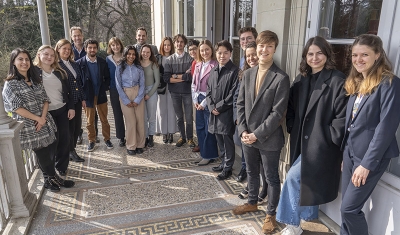10 May 2022
The digitalization of warfare proceeds quickly, as witnessed during the international armed conflict between Armenia and Azerbaijan in 2020 or the current invasion of Ukraine by Russia.
A key question related to the increasing employment of digital technologies in warfare – artificial intelligence/machine learning, drones, swarms, or ‘human enhancement’ technologies – is whether the existing legal frameworks, including international humanitarian law (IHL), are up to the task when it comes to the efficacy of the law of armed conflict and the protection it affords.
Written by Dr Henning Lahmann, our new Working Paper The Future Digital Battlefield and Challenges for Humanitarian Protection: A Primer provides an overview of the various novel technologies that together form part of the ‘future digital battlefield’ and assesses some of the implications they have for humanitarian protection in armed conflict.









